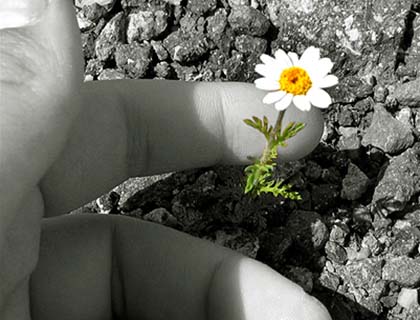Human dignity is inviolable and it must be respected and protected. The dignity of the human person is not only a fundamental right in itself, but constitutes the basis of fundamental rights in international law.
The 1948 Universal Declaration of Human Rights enshrined this principle in its preamble: “recognition of the inherent dignity and of the equal and inalienable rights of all members of the human family is the foundation of freedom, justice and peace in the world.”
For this reason the dignity of the human person is part of the substance of any right protected by international human rights law. It must, therefore, be respected, even where a right is restricted.
It is aptly stated, “All human beings are born free and equal in dignity and rights. They are endowed with reason and conscience and should act towards one another in a spirit of brotherhood.”
What is special about us is our humanity, our being human. As humans, we can think and articulate thoughts; we also have a sense of right and wrong, which is our conscience.
Equal does not mean that we are all the same. Each of us is different in our own special way. But we also have the common qualities that make us all humans. So each of us should be treated with respect and dignity and treat others in the same way.
Moreover, it should be considered that to be born free means that all people have an equal right to freedom. But freedom does not mean that we can do anything we want, nor can freedom for some mean limiting the freedom of others. Though we are born free, we live in a community that functions because there is an understanding among its members; in other words, it has rules and requires responsibilities.
Human dignity is not something that we can bestow or take away from another person. It is intrinsic to our existence. What we can do is enter into relationships that respect our mutual human dignity. When respect for human dignity forms the basis of our relationships.
Too often we dehumanize our brothers and sisters or shut our ears when they cry out. Failure to recognize the human dignity of each and every person opens the door to all manner of violence and injustice. But how can we truly make human dignity the cornerstone of our relationships?
This question is especially pertinent when we reflect on our relationships with people we may never meet; people who suffer in the far corners of the world and whose names we do not know. Although we may never meet, we still share the same planet and its gifts. These gifts are not simply for our own personal use but are entrusted to us by God for the flourishing of our human family. We are increasingly aware that our actions in one part of the world can affect people who live far away from us. We are interconnected.
Martin Luther King says, “The fight for equality must be fought on many fronts – in the urban slums, in the sweat shops of the factories and fields. Our separate struggles are really one – a struggle for freedom, for dignity and for humanity. .. We are together with you in spirit and in determination...”
In our daily life, when one person physically assaults another, we feel the wrong demands immediate condemnation and legal sanction. Whereas when one person humiliates or thoughtlessly makes use of another, we recognize the wrong and hope for a remedy, but the social response is less clear. The injury itself may be hard to quantify.
Writing in a very different revolutionary era, Karl Marx declared that the modern age would sweep all conventional morality and political structures aside in a complete transformation of values. In his memorable words, “all that is solid melts into air.” We are in the age of the advanced meltdown of those values. What Marx promised is now happening before our eyes.
Human dignity has also come under assault in the area of procreation. In particular, we now see children “produced” in a laboratory in order to help infertile couples achieve pregnancy. Since human beings are created by God, they have an equal dignity from the moment of conception. Every human relationship is one of equality between persons. However, with the use of artificial fertilization, the relationship between parent and child does not truly achieve a communion of persons but is a relationship of producer to product. In essence this is “equivalent to reducing [the child] to an object of scientific technology.” This is a direct assault on the dignity of the child.
It is said that dignity is like air. When you breathe easily, you don’t think about it. However, when you do not have enough of it, all you can think about is air, air and more air.
Imelda Marcos says, “Life is not a matter of place, things or comfort; rather, it concerns the basic human rights of family, country, justice and human dignity.”
No doubt, human beings show a natural tendency towards a dignified life and towards a death with dignity and glory. In other words, no one wills to suffer from indignity. Hence, since we are keen on being treated with dignity, let’s treat our fellows in the same way.

